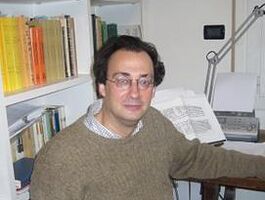Stefano Zacchetti
| PersonType | Category:Professors Category:Translators |
|---|---|
| FirstName / namefirst | Stefano |
| LastName / namelast | Zacchetti |
| MainNamePhon | Stefano Zacchetti |
| SortName | Zacchetti, Stefano |
| bio | Stefano Zacchetti (1968 – April 29, 2020) was an Italian academic specialising in Buddhist studies. From 2012 until his death in 2020 he was Yehan Numata Professor of Buddhist Studies at the University of Oxford and a professorial fellow of Balliol College, Oxford.
Born in 1968, Zacchetti studied Chinese and Sanskrit at Ca' Foscari University of Venice from 1986 to 1994, graduating with a Bachelor of Arts degree; this included two years of study abroad, at Sichuan University (1990–92). He then carried out doctoral studies at Venice and spent time studying at the Sinologisch Instituut and the Kern Institute at Leiden University. Ca' Foscari University of Venice awarded him a PhD in Asian Studies in 1999. Zacchetti taught Sinology at University of Padua for the 1999–2000 academic year. In 2001, he was appointed an associate professor at the International Research Institute for Advanced Buddhology at Sōka University in Tokyo. He returned to Ca' Foscari University of Venice in 2005 to take up a tenured lectureship in the Department of Asian and North African Studies. In the autumn of 2011 he was a visiting professor at the University of California, Berkeley. In 2012, he was appointed Yehan Numata Professor of Buddhist Studies at the University of Oxford and a professorial fellow of Balliol College, Oxford. Zacchetti died on 29 April 2020 from COVID-19. (Source Accessed Aug 11, 2023) |
| YearBirth | 1968 |
| YearDeath | 2020 |
| associatedwebsite | https://www.orinst.ox.ac.uk/people/stefano-zacchetti |
| affiliation | Oxford University |
| affiliationsecondary | Balliol College |
| cv | Yehan Numata Professor of Buddhist Studies; Fellow of Balliol College |
| publications |
|
| IsInGyatsa | No |
| Other wikis |
If the page does not yet exist on the remote wiki, you can paste the tag |

